#boston review
Text
Since the founding of the state of Israel, the Zionist movement has positioned the domination and oppression of Palestinians and the colonization of Palestinian land as the answer to the very real question of Jewish safety. They have taken the very real pain and trauma that we as Jews carry and sharpened it into a deadly weapon. We desperately must understand that what is happening is not a cycle of violence. It is a system of violence. Everyone is caught in its teeth.
It is the system of settler colonial apartheid that the Israeli government has built and maintained over the past seventy-five years—with billions upon billions of dollars from the United States. Settler colonialism is a structure, a language, a culture, an ideology—an interlocking, totalizing, system of violence. It is a machine of war and dehumanization against Palestinians. It is this system that imperils the lives and safety of everyone.
While the vast majority of the violence of the apartheid regime lands on Palestinians, there is no safety for Israelis in a system rooted in such dehumanization and oppression. In the words of Holocaust survivor Hajo Meyer, “My great lesson from Auschwitz is: whoever wants to dehumanize any other must first be dehumanized himself. The oppressors are no longer really human, whatever uniform they wear.” The Israeli government has lost any semblance of humanity as they wage a genocide against the people living in Gaza.
It is not Palestinians who have chosen the language of violence for this land. It is the Israeli government and the United States government that have created a state of violence.
Palestinians have remained steadfast in seeking freedom against immeasurable violence. Tens of thousands of Palestinians protested in weekly grassroots nonviolent protests at Israel’s militarized border wall around Gaza during the Great March of Return in 2019, and the Israeli government sent military snipers to murder and maim hundreds of children, women, medics, and journalists. Palestinians launch boycott campaigns to win their rights, and the Israeli government opens an entire new ministry to combat the nonviolent movement. Palestinians work at human rights organizations to document the crimes against them, and they are called and treated as terrorists. Palestinians speak the language of freedom, and the Israeli government responds—every single time—with the language of violence.
The United States government has united to fully support the Israeli war machine. Already the United States sends more than $3 billion in aid to Israel every year. Now Senator Lindsey Graham said, “I am with Israel. Do whatever the hell you have to do to defend yourself. Level the place.” Make no mistake: Israel isn’t defending itself, it is committing mass murder. Biden says, “We’ll make sure Israel has what it needs to take care of itself.” Make no mistake: Israel is waging genocide.
My dear ones in Palestine are saying that they have never experienced such destruction in seventy-five years of occupation. My dear ones are saying there is not a moment to wait. Do not sit back while Israel carries out a genocide fully enabled by the United States. Bring your full body, your spirit, your communities, your humanity, to meet this moment, to call your representatives, to the streets. “Never again” means standing up for Palestinian people. “Never again” means this very moment.
— Stefanie Fox, A Jewish Plea: Stand Up to Israel’s Act of Genocide, as featured in Boston Review
#stefanie fox#a jewish plea: stand up to israel's act of genocide#boston review#words#essays#articles#links#on zionism#palestine#free palestine
745 notes
·
View notes
Text
When Gays Wanted to Liberate Children
Seventies activists wanted to emancipate kids and destroy the nuclear family—so how did we end up with gay marriage instead?
Michael Bronski
In 1972 members of Boston’s Gay Men’s Liberation, one of the most significant Gay Liberation groups formed after the 1969 Stonewall riots, drove to Miami to hand out a ten-point list of demands at the Democratic National Convention. Emerging from a crucible of new queer political consciousness, feminism, and rage, the manifesto (reproduced at the bottom of this article) articulated a utopian political vision that was broad—today, we might say intersectional—extending far beyond what we would now conceptualize as LGBT politics. Its first demand, for example, was for “an end to any discrimination based on biology. Neither skin color, age nor gender should be recorded by any government agency. Biology should never be the basis for any special legal handicap or privilege.”
Gay Liberation repudiated child paternalism, the idea that children need the protection of adults and, in exchange, are eligible for fewer basic rights.
If many of Gay Men’s Liberation’s demands remain controversial forty-five years later, most are also still legible in today’s political discourse: the group sought to end U.S. imperialism, prevent discrimination based on sexual identity, and abolish the police. These all remain live demands of many radicals on the left. Demand six, however, is likely to strike even many of today’s activists as irresponsible, bizarre, and dangerous:
Rearing children should be the common responsibility of the whole community. Any legal rights parents have over “their” children should be dissolved and each child should be free to choose its own destiny. Free twenty-four hour child care centers should be established where faggots and lesbians can share the responsibility of child rearing.
Collective child rearing? Legally emancipated children? Queers helping to raise other people’s children and, by extension, serving as role models and moral exemplars? Isn’t this exactly what conservatives fear when they warn of the red flag of liberal “social engineering,” a queer version of Soviet indoctrination daycares?
Or is it a utopia that would finally liberate women from the burdens of reproduction, while also creating a social structure in which children could safely function as independent beings who are not frightened or shamed out of exploring their sexuality?
• • •
Radical feminists argued that men had invented the idea of childhood innocence to bolster the oppression of women, which was also the function of the nuclear family.
Since at least the eighteenth century, there has been robust debate about the nature of childhood. While questions of whether or not children are innately good, suitable for the open labor market, or in need of standardized education have elicited polarized opinions over the centuries, most reformers have assumed, to varying degrees, a starting point of child paternalism, the idea that children need the protection of adults and, in exchange, are eligible for fewer basic rights.
The children’s liberation movement of the late 1960s was a dramatic break from all of this, no matter how progressive many prior reforms may have been, because it repudiated child paternalism. Set against the backdrop of a cultural moment when adults—from hippies and radical feminists to civil rights to early gay rights—were seeking greater personal freedoms, it was perhaps only a matter of time before young people identified themselves as—or were identified as—an oppressed minority deserving of legal equality and, in effect, manumission.
Even recalling what we know about the radical nature of the 1960s, it can be difficult to appreciate that child liberation was not a fringe idea. Paul Goodman’s bestselling 1960 Growing Up Absurd: Problems of Youth in the Organized System proposed that children were among the first casualties of capitalism run amok, while A. S. Neill’s progressive education treatise of the same year, Summerhill: A Radical Approach to Child Rearing, proposed not only that children could function as democratic actors and make sensible social and sexual choices, but that his school had already been facilitating this for years, to no ill effect. When it appeared in English in 1962, medievalist Phillippe Ariès’s Centuries of Childhood: A Social History of Family Life caused a similar sensation, tracing a detailed history of childhood in the West to demonstrate that our modern notion of “childhood”—of a child who must be sheltered from the world—was a social construct of only recent vintage, as was the nuclear family. For much of history, Ariès showed, all except the youngest children had functioned in the world much as adults do.
Summerhill sold over two million copies between 1960 and 1970, and Goodman’s Growing Up Absurd sold over one hundred thousand copies in the first few years of publication. The political language of liberation quickly replaced theory and conjecture. During the 1970s, at least fifteen mass-market books promoted ideas of children’s rights and children’s liberation, including David Gottleib’s Children’s Liberation (1973) and Beatrice and Ronald Gross’s The Children’s Rights Movement: Overcoming the Oppression of Young People (1977).
These ideas took an even more radical turn when they were combined with the newly emerging discourse of Women’s Liberation. Shulamith Firestone, for example, in her groundbreaking The Dialectic of Sex (1970) argued that physical reproduction itself was at the core of women’s oppression and called for new technologies to replace childbirth. In addition, she contended that children were an oppressed class who suffered under the regime of the patriarchal family. In her chapter “Down with Childhood,” Firestone argues that the very creation of the category “childhood” and the idea of “childhood innocence” were adult male constructions invented to bolster the oppression of women, which was also the function of the nuclear family. Kate Millett went further in her 1984 essay “Beyond Politics: Children and Sexuality,” contending that the oppression of children is explicitly rooted in denying them sexual knowledge: “Sex itself is presented as a crime to children. It is how adults control children, how they forbid them sexuality. This has been going on for ages and is infinitely important to adults.”
Gay activists risked being labeled as pedophiles simply for admitting that there were gay kids.
Gay Liberationists were inspired by Women’s Liberation and many wished in their activism to engage the topics of childhood and pedagogy. However, they faced the risk of being labeled pedophiles simply for expressing theoretical interest in children; gay men at the time were still, after all, assumed by most of Middle America to be perverts. Some gay writers took a stand by simply admitting what most gay people knew and most heterosexuals desperately tried to deny: there were gay kids. Confronting the myth that adult women and men “chose” homosexuality, or had been seduced into it by degenerate adults, gay liberationists told their own stories of being gay children, and theorized—along the lines of Kate Millett—that sexual repressions and lack of sexual knowledge were far more dangerous than same-sex activity for youth. In his foundational “The Gay Manifesto,” published a month before the Stonewall riots, Carl Wittman wrote:
A note on the exploitation of children: kids can take care of themselves, and are sexual beings way earlier than we’d like to admit. Those of us who began cruising in early adolescence know this, and we were doing the cruising, not being debauched by dirty old men. … And as for child molesting, the overwhelming amount is done by straight guys to little girls: it is not particularly a gay problem, and is caused by the frustrations resulting from anti-sex puritanism.
Simply speaking of the existence of gay children struck at the heart of much homophobia. Testaments from gay adults that they had had queer sexual desires as kids was a new development in the public conversation about homosexuality and a bold political strategy. Indeed, the naming of the existence of gay teens and children—in the context of an emerging children’s liberation movement—had an immediate effect on political organizing. Soon after the Stonewall riots, as Gay Liberation groups spread across the country, queer youth began to organize. In The Gay Liberation Youth Movement in New York: “An Army of Lovers Cannot Fail” (2008), Stephan L. Cohen documents at least thirty U.S.-based groups formed, and run, by LGBT youth during the decade.
More radical theorists felt that once one accepted the idea that the bourgeois family suppresses children’s sexuality, the logical next step was to demand both an end to the nuclear family and the involvement of gay men and lesbians in the raising of children. Although its ideological purity may have made it somewhat extreme, the basic idea of a political movement inserting itself into the raising of children was not a stretch at the time. Other political movements were already dealing with issues of how they conceptualized children and their political place in the world. The Black Panthers, for example, began their own schools and after-school programs, and, with their free breakfast program, injected themselves into existing public school systems. Mainstream and radical feminists started feminist daycare centers. They also published non-sexist children’s books. The most famous included Marlo Thomas’s 1972 illustrated book and record Free to Be… You and Me, which touted gender equality; and Charlotte Zolotow’s 1972 picture book, William’s Doll, in which a boy wants a present of a doll to play with, much to his father’s gender-normative chagrin.
Queer adults had been raising other people’s turned-out queer children for years. But they did not want their families to be seen as second-rate any longer.
To insist that lesbians and gay men should be able to help raise children was a radical vision of how the traditional family might change, but its aim was not only to shape children but also to shape adults: many activists felt that only when they were able to participate in the raising of society’s next generation would they fully enjoy the rights of citizenship.
But it also would be to formally acknowledge that queer adults had been raising other people’s turned-out and runaway queer children for years, particular in gay ghettos such as New York’s West Village and San Francisco’s Castro. Queer kids who were homeless, either by choice or circumstance, tended to flock to these neighborhoods, where they would often find themselves taken in by a sympathetic adult. Sylvia Rivera and Marsha P. Johnson, for example, started Street Transvestite Action Revolutionaries (STAR) in 1970 to set up shelters in Manhattan for homeless trans youth. In the gay slang of the 1950s and ’60s, an older gay man would be called “mother” if he took on the task of guiding or advising newly-out young gay men.
This dovetailed with an idea prevalent in the early 1970s of “gay family”: extended, often intergenerational groups of friends who supported one another as a biological family might. Making family in community was vital—literally lifesaving—to the daily lives of many LGBT people at the time. The vibrancy of this idea of chosen family was evident at the end of the decade when Sister Sledge’s hit “We Are Family” became an instant favorite in gay bars and often was played as the final song at LGBT community dances and Gay Pride marches. Gay family became even more urgent during the AIDS epidemic, as many biological families abandoned their sick sons and traditional care communities crumbled.
In other words, gay people had been creating and nurturing families for years—families that offered many advantages—notably physical and emotional safety—over nuclear families. But they did not want their families to be seen as second-rate any longer, and they wanted to free everyone from what they saw as a tyrannical imposition of patriarchal, bourgeois values.
• • •
The radical aim of upending the nuclear family was replaced by a gay rights agenda that gave renewed life to the nuclear family by reinvesting in its symbolic and practical necessity.
Gay Men’s Liberation’s demands never came to fruition, and the authors of the ten-point demands often had only nascent ideas of what practically it would look like to implement their prescriptions. Similarly, some male members of New York’s Gay Liberation Front left the organization, which they felt was insufficiently feminist, and formed the Revolutionary Effeminists. Historian Martin Duberman, in his 2018 analysis of the LGBT Rights movement Did The Gay Movement Fail?, writes that the Effeminists “argued that gay men should virtually place themselves in the service of women, taking on their traditional household tasks, including the raising of children, to order to foster women’s rise to power.” However, it seems that the Effeminists also did not get much past theory, and the group never expanded from its founding members and soon died out.
That said, the actual practice of queer child rearing was happening in less radical ways on the local level. Besides the example of de facto gay adoption noted above, in 1975 some gay and straight men in Boston—not connected to Gay Men’s Liberation, but perhaps inspired by its demands—formed the Men’s Child Care Collective. Although the group was consciously created as a straight/gay alliance, the few published accounts of the group always identify it as “the gay men’s child care collective”—a slip of the tongue that perhaps speaks truth to the fact that the group was overwhelmingly composed of gay men. The organization met at the Bromfield Street Educational Foundation at 22 Bromfield Street in downtown Boston, where the publications Gay Community News and Fag Rag (an offshoot of Gay Men’s Liberation) had their offices. Most meetings were consciousness-raising sessions about how gay and straight men might be friends, work together, and—as a progressive men’s movement that enacted feminist ideas—help women by sharing the work of caring for children.
One concrete project they conducted was having a daycare group for women attending Alcoholics Anonymous meetings in Cambridge. They also volunteered daycare services at LGBT and progressive political conferences. A focus of the group was offering childcare to women who were, in various ways, marginalized or at risk. Their feminist analysis, reflecting some of the Gay Men’s Liberation demands, reflected concerns over class, economics, and race. Like many political groups, the Men’s Child Care Collective lasted a few years until, as members moved out of Boston or became more involved in other projects, the group folded.
Similar groups formed in cities across the country, including San Francisco, Santa Cruz, and New York. The aims of these groups were threefold. As feminists, the members had a commitment to easing some of women’s burden for caring for children. They were also consciously rebelling against restrictive gender roles that excluded men from being seen as caring and nurturing to children. Perhaps most important, they were determined to confront—through word and deed—the deeply rooted myth that gay men were child molesters.
Replacing the traditional heterosexual family with its same-sex analogue will not eliminate the profoundly damaging structural problems of the institution.
Nonetheless, while these groups, Boston’s Men’s Child Care Collective included, were radical in their conception, they were also curiously traditional, as they tended to place gay men in the role of temporary caretakers for children of heterosexual relationships. While there were lesbians with children in the early 1970s, most of them were women who had left marriages. The idea of the lesbians or gay men together having children who were, in some meaningful sense, their “own” did not fully emerge for at least another decade—and when it did, it often took a shape that mirrored rather than challenged the heterosexual, nuclear family. With this came the near-fetishistic prioritizing, in gay rights activism, of gay marriage over all other causes. The radical Gay Liberation aim of upending the nuclear family was replaced by a gay rights agenda that gave renewed life to the nuclear family by reinvesting in its symbolic and practical necessity.
By 1977 the country saw the rise of a national conservative movement that would put Ronald Reagan in the White House. It also heralded the emergence of the highly organized Moral Majority movement that injected a discourse of right-wing evangelical Protestantism into politics. Consequently, Anita Bryant’s attack on a LGBT antidiscrimination bill that would have protected homosexual teachers in Miami-Dade County, Florida, was explicitly articulated in terms of protecting children. Leading a national “Save Our Children” crusade, Bryant drew on the longstanding tropes of molestation, abuse, and indoctrination that had plagued homosexuals throughout modern U.S. history.
Rather than confront these lies with facts or, better yet, the testimony of queer young people, the gay rights movement backed away from any connections to children and teens. Gay community centers were hesitant to sponsor gay youth groups. There was a chilling effect on discussions of gay men or lesbians legally adopting children. Any discussions of introducing LGBT materials into the classroom were put on hold. Over the next decades political discussions moved from collective care of children, and extended gay families, to the privatized same-sex nuclear family of marriage equality. In the larger political context, discussions of children’s liberation also vanished, replaced by talk of protecting children from sex, from “dangerous” music and video cultures, and lurking predators.
The fight for marriage equality has been crucial to the success of gay rights in recent decades. It, however, is a decidedly mixed victory for those of us who recall the visionary political exuberance, and potential of radical change, of earlier days. Replacing the traditional heterosexual family with its same-sex analogue will not necessarily eliminate any of the profoundly damaging structural problems of the institution. The strategies, and theoretical approaches, of Gay Liberation concerning children were complex and politically complicated. They ranged from the practical to the impossible. They were driven by earnest care for children as well as a desire to radically break from the gridlock of oppressive family structures. At heart, all of these diverse moves—from identifying the existence of gay kids, to caring for children, to destroying the legal framework that allowed parents to “own” children—were not only attempts by Gay Liberationists to remake the world, but to heal decades of wounds inflicted by society and in particular by queer people’s biological families.
In many ways this healing has, over half a century, been slowing occurring. Amazing numbers of young people are coming out earlier and earlier. Discussions of queer youth sexuality—and gender roles—are increasingly sophisticated and vibrant. In ways that Gay Liberation began to imagine in 1972, the kids are all right; they are taking care of themselves.
Boston Gay Liberation Front’s Ten-Point Demands

Sidebar 2: Boston GLF’s 10-Point Demands
Presented to the 1972 Democratic National Convention in Miami
Boston GLF urges that the following principles be incorporated in the 1972 Democratic Party Platform:
We demand an end to any discrimination based on biology. Neither skin color, age nor gender should be recorded by any government agency. Biology should never be the basis for any special legal handicap or privilege.
We demand an end to any discrimination based on sexual preference. Everyone should be free to pursue sexual gratification without fear of rape. Governments should neither legalize nor illegalize these forms of gratification. And no one should be restrained in movement (either immigration or emigration), in employment, in housing or in any other way for being a faggot or lesbian.
The United States government should not only end discrimination based on dressing habits but should positively encourage more imaginative clothing. No member of the armed forces or other government agency should be forced to wear a “uniform” to conform to either biological gender or hierarchical position. For instance, if they prefer, women should be allowed to wear short hair and pants; males, to wear long hair and dresses.
All economic discrimination against faggots and lesbians should be ended. We should not be denied either employment nor promotion because of our sexual preference or dress habits. We should have the same tax advantages as heterosexuals living in nuclear families. And like all people, we should have free access to sufficient food, housing, medical service and transportation in order to lead a full and rewarding life. We specifically support a guaranteed annual income of $5,500 for every individual, and we call for a redistribution of the national wealth. Resources and power must be taken from straight, white heterosexual men and redistributed among all the people.
We call for an end to all government (or other) research on “homosexuality.” Our preference is no disease; all chemical, electric or hypnotic “treatments” to “cure” us should be outlawed. Government funds now being used for “mental health” should be given to groups of lesbians, faggots and other “mental patients” so that they may organize themselves in counseling and community centers to administer to their own needs.
Rearing children should be the common responsibility of the whole community. Any legal rights parents have over “their” children should be dissolved and each child should be free to choose its own destiny. Free twenty-four hour child care centers should be established where faggots and lesbians can share the responsibility of child rearing.
All lesbians or faggots now imprisoned for any “sex crime” (except rape) should be released immediately from brigs, mental hospitals or prisons. They should be compensated at $2.50 an hour for each hour of their confinement and all records of their incarceration should be destroyed. Lesbians and faggots imprisoned on other charges should be protected from beatings and rape at the hands of their jailors or inmates, and no one should be denied quick release or parole for engaging in “homosexual acts” while confined.
We call for an end to all aggressive armed forces. We support the Vietnamese people’s Seven Point Peace Program and call for the total withdrawal of all United States and United States-supported air, land or naval forces from Vietnam. Moreover, we call for the return of all United States troops to within the United States borders as the most effective way to end American imperialism.
Within the United States, we call for a disbanding of all armed forces, secret police (FBI, CIA, IRS, Narcotics squads, etc.) and uniformed police. Arms should be used only to protect the people and to prevent rape. For this purpose, we call for the formation of a people’s police to be organized by those now most subject to police brutality: third world groups, women, lesbians, faggots and poor people generally.
We call for the self-government and self-determination of all peoples irrespective of national, sexual, party, race, age or other artificially imposed categories. Our liberation cannot be complete as long as any person is the property or the slave of another in any way. All coercion and dominance must end, equality must be established and we must search together for new forms of cooperation.
Extra links added by me.
#repost of someone else’s content#article#boston review#FAQ#101#homophobia#lesbophobia#transphobia#gay pride#gay liberation#queer liberation#youthlib#youth liberation#ageism#adultism#childism#anti nuclear family#nuclear family abolition#prison abolition#police abolition#anarchism#antipsych#anti psychiatry#psychiatric abuse#psych abolition#psychiatric abolition#misogyny#transmisogyny#transmisia
88 notes
·
View notes
Text

Corey Van Landingham, pub. in Boston Review, 2018
7 notes
·
View notes
Photo
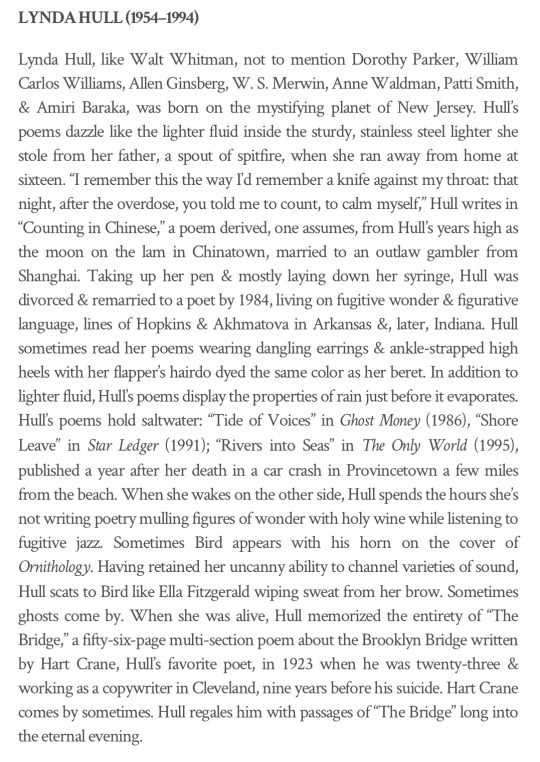
LYNDA HULL (1954–1994)
Lynda Hull, like Walt Whitman, not to mention Dorothy Parker, William Carlos Williams, Allen Ginsberg, W. S. Merwin, Anne Waldman, Patti Smith, & Amiri Baraka, was born on the mystifying planet of New Jersey. Hull’s poems dazzle like the lighter fluid inside the sturdy, stainless steel lighter she stole from her father, a spout of spitfire, when she ran away from home at sixteen. “I remember this the way I’d remember a knife against my throat: that night, after the overdose, you told me to count, to calm myself,” Hull writes in “Counting in Chinese,” a poem derived, one assumes, from Hull’s years high as the moon on the lam in Chinatown, married to an outlaw gambler from Shanghai. Taking up her pen & mostly laying down her syringe, Hull was divorced & remarried to a poet by 1984, living on fugitive wonder & figurative language, lines of Hopkins & Akhmatova in Arkansas &, later, Indiana. Hull sometimes read her poems wearing dangling earrings & ankle-strapped high heels with her flapper’s hairdo dyed the same color as her beret. In addition to lighter fluid, Hull’s poems display the properties of rain just before it evaporates. Hull’s poems hold saltwater: “Tide of Voices” in Ghost Money (1986), “Shore Leave” in Star Ledger (1991); “Rivers into Seas” in The Only World (1995), published a year after her death in a car crash in Provincetown a few miles from the beach. When she wakes on the other side, Hull spends the hours she’s not writing poetry mulling figures of wonder with holy wine while listening to fugitive jazz. Sometimes Bird appears with his horn on the cover of Ornithology. Having retained her uncanny ability to channel varieties of sound, Hull scats to Bird like Ella Fitzgerald wiping sweat from her brow. Sometimes ghosts come by. When she was alive, Hull memorized the entirety of “The Bridge,” a fifty-six-page multi-section poem about the Brooklyn Bridge written by Hart Crane, Hull’s favorite poet, in 1923 when he was twenty-three & working as a copywriter in Cleveland, nine years before his suicide. Hart Crane comes by sometimes. Hull regales him with passages of “The Bridge” long into the eternal evening.
—Terrance Hayes, from “Two Tributes” (Boston Review, October 2021)
#terrance hayes#typography#poets#tribute#lynda hull#boston review#the mystifying planet of new jersey#<3
2 notes
·
View notes
Text
the experiment // Juan Felipe Herrera
they went south
they came north
they went south
they came north
this was their wilderness it went on decade after decade
their wilderness their desert their omnipresent exodus
they were packed separated
filtered into a bus
ordered to return after due processing yes
yet joy and happiness
continued
#poetry#Juan Felipe Herrera#American poetry#Boston Review#migration#migrants#south#north#immigrant songs#loving the world anyway#joy
0 notes
Text
“As an expression of love as radical responsibility, mutual comradeship guides activism and organizing in the Black radical tradition and helps to bridge strategic unity and productive conflict. It does all this in specifically political circumstances, with a specific political goal: the process of envisioning and striving to build a world beyond racial capitalism and imperialism—and of weathering the inevitable backlash for doing so. Moving beyond shared ideology, mutual comradeship is simultaneously an ethical, epistemological, and political practice of solidarity. Ethically, it emanates from the guiding principle of courage—the willingness to place oneself at risk for the betterment of others and shared values of cooperative social activity, a common conception of social transformation rooted in the eradication of racial capitalism, and the establishment and maintenance of expectations and standards through consistent struggle, debate, criticism, and self-criticism. These ethics are in the service of protecting, preserving, and valuing not only movements and organizations, but also each other.”
Charisse Burden-Stelly, “Settle Your Quarrels” (2023)
#charisse burden-stelly#mutual comradeship#black studies#black politics#solidarity#love#boston review#black political economists#black radical tradition#african diaspora studies#black communism
0 notes
Photo

(via Black Voices in the Public Sphere Fellowship - Boston Review)
1 note
·
View note
Link
Cited from the article: “What is remarkable fifty years later is the extent to which the real world has disappeared from our discussions of conspiracy theories. We have replaced social and economic conditions with cognitive deficiencies, ancient mythologies with logical fallacies, history with atavistic biases.
It is not just that we have projected the causes of conspiracism deep into the recesses of the human brain; we assume that these depths are easier to know than the world that surrounds us and more amenable to reform.
The champions of debunking and the new information vigilantes are not interested in entertaining the possibility that the root cause of conspiracy theories may be located outside the mind and may require a reexamination of our economic and social arrangements. For them, the world is fine as it is; it is all a matter of bringing people in alignment with a reality which they fail to appreciate.
Steven Pinker, one of the paladins of truth and rationality, suggests implementing nothing less than “debiasing” programs that would help individuals see that there is nothing wrong with the world and that everything will be okay if we let those in charge take care of it. The imperative is to adapt to a world given a free pass and avoid the temptation of meddling with it.
Debunking ultimately turns out to be a defense of the status quo—not because conspiracy theories may be true, but because it uses them to further restrict the space for politics. “
This puts in such great language the reason why Steven Pinker is so immensely annoying. Recommended read!
0 notes
Text
Now Reading:
Paula Findlen for Boston Review “The Feminist Past History Can’t Give Us” (2021)
https://bostonreview.net/articles/the-feminist-past-history-cant-give-us/
#paula findlen#laura bassi#women in history#feminist history#women in science#boston review#now reading#not sure how to tag my own posts at this point
1 note
·
View note
Text
On May 1 organizers from the Amazon Labor Union (ALU) joined the New York City Central Labor Council and community organizations to march from Washington Square Park to Foley Park. After a long afternoon of marching and chanting in the sun, about a third of the core organizing committee made their way to a May Day party at the Communist Party headquarters in Chelsea. In the Party’s spacious office, adorned with pictures of William Z. Foster and Lenin, a racially diverse group of twenty-somethings—ALU organizers, members of the Young Communist League (YLC), and fellow travelers—drank Modelos and Bud Lights, ate pizza, and danced to the Backstreet Boys. They were celebrating May Day and the first successful union election at Amazon—the ALU’s April 22 victory at the JFK8 warehouse on Staten Island.
The organizers at the party included long-term Amazon workers as well as “salts.” Salts are workers who take jobs at a workplace with the goal of unionizing it—a strategy that left-wing organizations have used in the past, but that hasn’t garnered results in recent decades. Salts played an important but underreported role in the ALU’s widely celebrated union election at JFK8. Six of two dozen or so members of the core organizing committee were salts. ALU organizers wound up at the Communist Party headquarters on May 1 because Justine Medina, an organizing committee member who was recruited to JFK8 by the Young Communist League, helped plan the party.
Today’s salts are one component of a new militant minority, a layer of combative, politically conscious rank-and-file leaders within the labor movement. Their presence at Amazon and Starbucks suggests that we are witnessing an organic convergence of the college-educated middle class with the existing working class. This new militant minority, comprised of working-class labor leaders and left-wing college graduates, has the potential to unite the rejuvenated labor movement and other post-Occupy, post-Bernie arms of the U.S. left. If this occurs, then the victory at JFK8 portends many more to come.
Read More
0 notes
Text
"And the everyday unsanctioned movement of people—defying borders and risking death—is, in itself, worldmaking and homemaking. Without romanticizing or generalizing the politics of those on the move, we must recognize the sheer will and productive power they represent. In their determination for a different life, migrants and refugees subvert the multibillion-dollar global industry of barbed wire walls, drone surveillance, militarized checkpoints, and bureaucratic violence aimed at fatally deterring them. Revolutions bring no guarantees, but they do call on us to dream, listen, commune, act, struggle, dismantle, rematriate, create, to move and make anew." - Harsha Walia, There Is No 'Migrant Crisis,'" The Boston Review, November 16, 2022
#antifa#refugees welcome#antifascist#no one is illegal#antifascism#your borders kill#harsha walia#the boston review
253 notes
·
View notes
Photo

--Morgan Parker, pub. in Boston Review
4 notes
·
View notes
Text
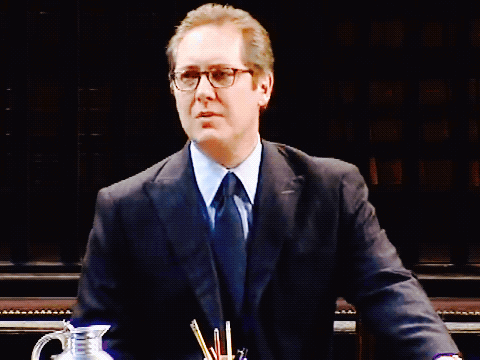
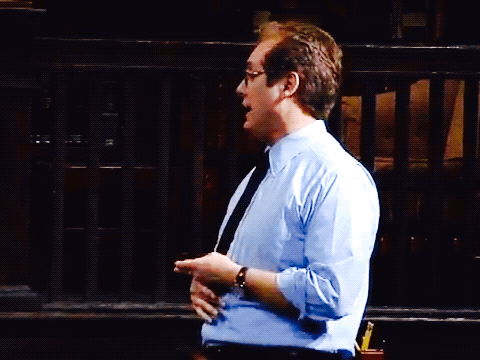
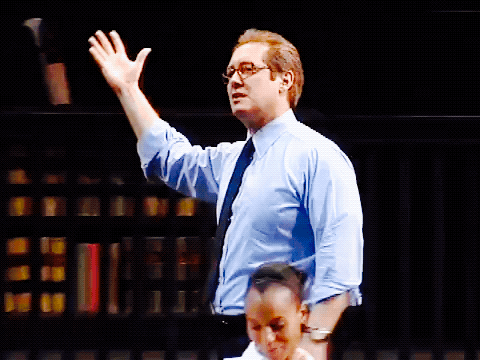


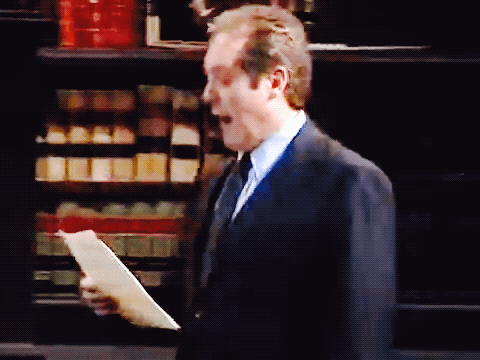

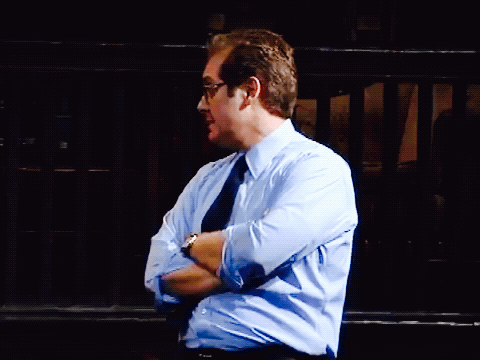

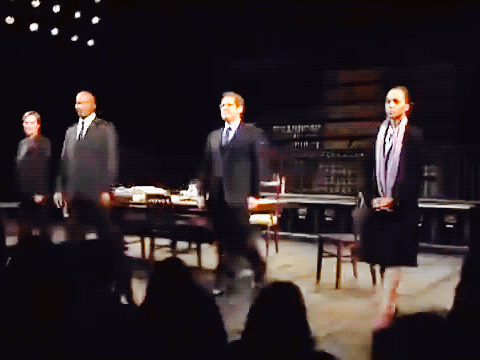
James Spader playing Jack Lawson in his Broadway debut as the star of David Mamet's Race, which ran from December 2009 to August 2010
#boston legal ended 2008. race started 2009. welcome back alan shore#my deepest desire in the world is for jim to do another broadway show... literally nothing I wouldn't give to make that happen 🥺#james spader#race#stage#*#read the play this morning hmmm. as with most mamet works I'm sure it's better coming from the actors' mouths rather than the page#which appears to be true from the few short clips available online and reviews#but this was jim's first stage work in decades and he got rave reviews 🎉#when he takes off his jacket...... gd his body he looks so good and he way he touches himself. he's so solid I need to hug him#and his hair falling out 🤤
25 notes
·
View notes
Text
in your carpeted office you lay my life down // Raisa Tolchinsky
and say open up to that small room in my sternum.
and because you believe in angels & describe
even the brutal wicks of their tongues, i open the door.
i always find another—behind one is a thousand dollars,
behind another a baby goat.
don’t name the goat, you say. but the sun is out and the hinges sound like chimes,
and some angels have eyebrows like Frida. others are bright stars burning down the blue
atmospheric edge.
i trust you because you are specific, and so i open all the doors.
hidden candy bars under the solid brass lamp. then weeks of coffins.
how my favorite smell is the storm in my stomach.
open, open.
there, my mother’s footsteps.
then, only wind. only magnolia adorned with open mouths, wider each day.
you say: hello hawk, hello full bloom,
welcome.
do you see how the hawk carries some dead thing in its mouth?
is there a peephole? is the sky the dead thing or the most alive?
when most say “love” they mean illusion—
april, interrupt me, please.
me, too. i am here, looking at the death behind you.
let me simper in tight circles, in wide loops, for a while.
the hawk watches—but it’s love, i say, forgive me.
i once spoke to a praying mantis hidden in the frame.
#poetry#Raisa Tolchinsky#American poetry#Boston Review#hawks#praying mantis#love#April#surreal poetry
1 note
·
View note
Text
REVIEW | "Goodbye Volcano High" | B3 - Boston Bastard Brigade
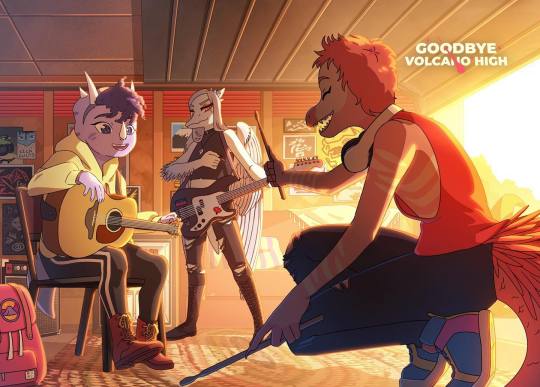
With its strong characters and beautiful soundtrack, Goodbye Volcano High is one of the strongest Western visual novels to come around in a long time. Read more about it in KBD's review.
#king baby duck#review#reviews#video games#visual novel#ko_op#goodbye volcano high#lgbt#lgbtqia#pc#ps4#ps5#boston bastard brigade#black compat
38 notes
·
View notes